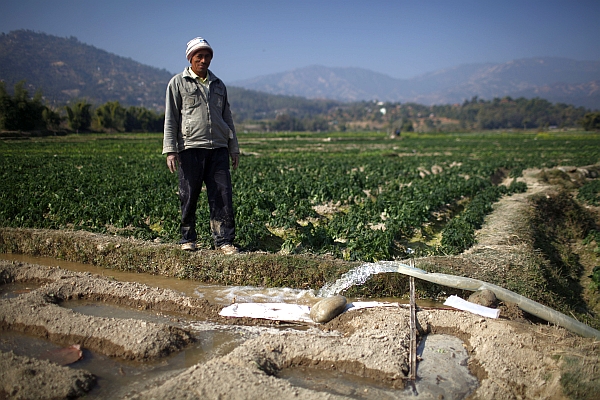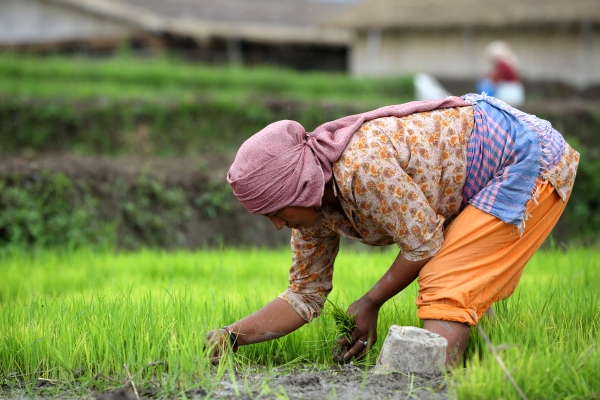Can role-playing support better water management in Nepal?
Role-playing games have moved into water management in Nepal’s Koshi River basin, northeast of Kathmandu. A new report demonstrates how this type of game can help water experts understand some of the complexities of water management and test different policies.

The game focused on the interactions between water storage, male migration and changing social relations in several rural villages in the Koshi River basin. The villages in this part of the country are highly vulnerable to climate change and are experiencing increases in drought during both the wet and dry seasons. According to the report, water storage could help lessen the impacts on food production and livelihoods. But this type of intervention first requires an evaluation of the complex and rapidly changing social structure of each site.
For example, out-migration of labor is a growing trend in Nepal, and this is having a significant impact on households and village life because it tends to decrease the pool of resources and skills available in the community. While it is sometimes seen as an ‘adaptive strategy’ to poverty – migrating family members often send home remittances – it can also leave those remaining on the homestead struggling to balance more responsibilities. This in turn can affect the success of efforts to improve water storage: with less labor to construct storage infrastructure and fewer people involved in community decision making, interventions of this kind can easily run into pitfalls.
The players were provided key information about the area, policy options and budget allocations. The teams entered their policy decisions into the game at each turn, which simulated 10 years. A spokesperson from each team explained the reasoning behind their policy choice, and at the end of the game, the impacts of these policies on average household income and village population were revealed to all of the participants, who then voted to decide the winning team.

The winners focused on equitable policies that helped ‘smooth the transition’ for households with migrating family members when faced with limited local opportunities while also supporting those who stayed. According to the report, migration is not necessarily a bad, nor a modern phenomenon. It is part of economic development, and better policies can ensure more ‘wins’ across the board.
The authors of the report believe that role-playing games can help. By playing out different scenarios, water experts can get a better idea of how communities will respond to policy changes. This can help raise awareness of challenges and opportunities and support better communication across sectors.
“It is important for decision makers to be aware of unexpected impacts and respond to them in a well-informed manner,” said Fraser Sugden, IWMI. “They can use the lessons they learn in the games and apply them to the real world.”
Janmaat, J.; Lapp, S.; Wannop, T.; Bharati, L.; Sugden, F. 2015. Demonstrating complexity with a role-playing simulation: investing in water in the Indrawati Subbasin, Nepal. Colombo, Sri Lanka: International Water Management Institute (IWMI). 38p. (IWMI Research Report 163). doi: 10.5337/2015.212
Fraser Sugden is a Researcher – Social Science at the International Water Management Institute (IWMI), Kathmandu, Nepal.
This work has been undertaken as part of the CGIAR Research Program on Climate Change, Agriculture and Food Security (CCAFS).

